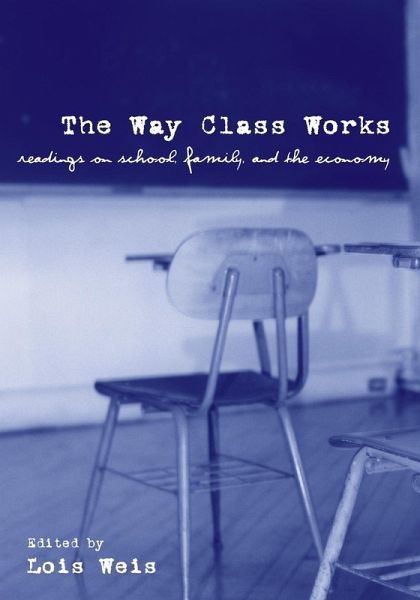
The Way Class Works
Readings on School, Family, and the Economy
Herausgeber: Weis, Lois
Versandkostenfrei!
Versandfertig in 1-2 Wochen
55,99 €
inkl. MwSt.
Weitere Ausgaben:

PAYBACK Punkte
28 °P sammeln!
This collection discusses conditions of social class and the ways in which class is produced in educational institutions and families, while simultaneously interrogating and challenging our understandings of social class as it is linked to race, gender, and nation.














